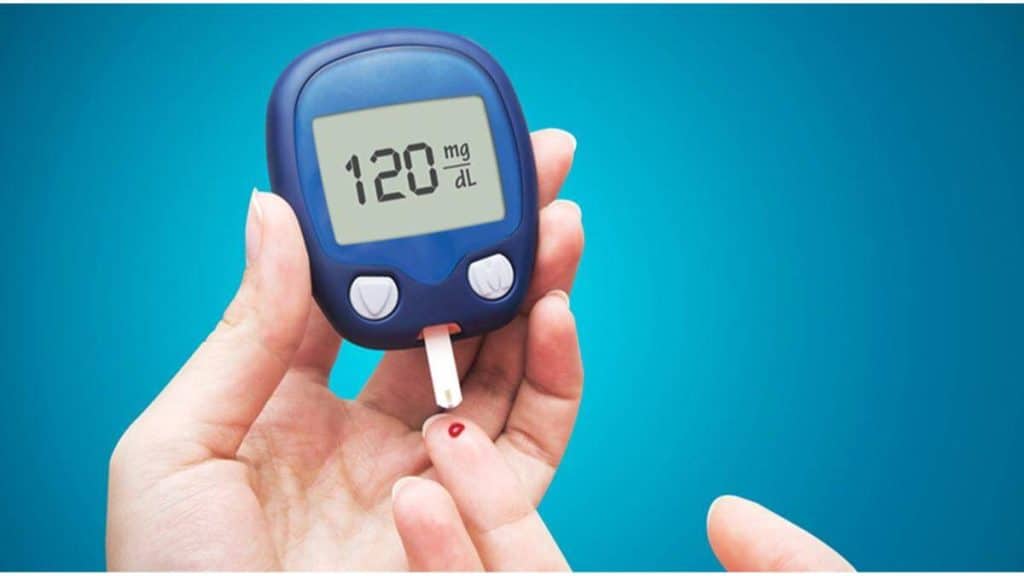Are you struggling with diabetes and looking to shed those extra pounds? You’re not alone. Many people with diabetes also struggle with weight management. But here’s the good news – achieving weight loss and managing diabetes can go hand in hand. In this article, we will explore the connection between diabetes and weight loss and share important information you need to know.
Understanding Diabetes and Its Connection to Weight Loss
Diabetes is a condition that affects how your body processes glucose, resulting in high blood sugar levels. It is categorized into two main types: type 1 and type 2 diabetes. Type 1 diabetes is an autoimmune disease where the body’s immune system mistakenly attacks the cells in the pancreas that produce insulin. On the other hand, type 2 diabetes occurs when the body becomes resistant to insulin or doesn’t produce enough insulin to regulate blood sugar levels effectively.
Maintaining a healthy weight is crucial for managing diabetes and reducing the risk of complications. But losing weight with diabetes can be a challenge, as the condition can affect your metabolism and make weight loss more difficult. However, with the right approach, it is possible to achieve weight loss and improve your diabetes management.
The Importance of Weight Management in Diabetes Management
Weight management plays a crucial role in managing diabetes. Excess weight, especially around the abdominal area, increases insulin resistance and makes it harder for the body to control blood sugar levels. By losing weight, individuals with diabetes can improve their insulin sensitivity and enhance the effectiveness of diabetes medications or insulin therapy.
Furthermore, maintaining a healthy weight can help reduce the risk of developing other health complications associated with diabetes, such as heart disease, high blood pressure, and stroke. It also supports better overall well-being and quality of life.
How Weight Loss Can Improve Diabetes Control
Weight loss has been shown to significantly impact diabetes control. Shedding excess pounds can improve blood sugar control, decrease insulin resistance, and reduce reliance on diabetes medications. In some cases, weight loss may even result in the remission of type 2 diabetes, where blood sugar levels return to normal without needing medication.
When combined with other lifestyle modifications, such as a healthy diet and regular exercise, nutrition supplements, weight loss can contribute to better long-term diabetes management and reduce the risk of complications.
The Role of Diet in Diabetes and Weight Loss
Dietary choices play a crucial role in both diabetes management and weight loss. A well-balanced diet focusing on controlling carbohydrate intake, choosing healthy fats, and incorporating lean proteins can help stabilize blood sugar levels and support weight loss goals.
One popular approach is the low-carbohydrate diet, which restricts the intake of foods high in carbohydrates, such as bread, pasta, rice, and sugary snacks. This diet can help regulate blood sugar levels and promote weight loss by reducing the need for insulin and encouraging the body to burn stored fat for energy.
Another effective dietary strategy is portion control. By monitoring portion sizes and eating smaller, more frequent meals throughout the day, individuals with diabetes can prevent blood sugar spikes and maintain steady energy levels. Additionally, choosing nutrient-dense foods, such as fruits, vegetables, whole grains, and lean proteins, provides essential vitamins and minerals while keeping calorie intake in check.
Recommended Exercises for Weight Loss in Individuals with Diabetes
Regular exercise is essential for weight loss and diabetes management. Physical activity helps burn calories, improve insulin sensitivity, and strengthen the cardiovascular system. However, individuals with diabetes should consult their healthcare provider before starting any exercise program to ensure it is safe and appropriate for their specific needs.
Combining aerobic exercises and strength training is recommended for weight loss and overall health. Aerobic exercises like walking, cycling, swimming, or dancing increase heart rate and help burn calories. Aim for at least 150 minutes of moderate-intensity aerobic activity per week, spread out over several days.
Strength training exercises, such as lifting weights or resistance bands, help build muscle mass and increase metabolism. Incorporate strength training two to three times a week, targeting major muscle groups.
Tips for Successful Weight Loss with Diabetes
Losing weight with diabetes requires a comprehensive approach that combines dietary changes, regular physical activity, and healthy lifestyle habits. Here are some tips to help you achieve successful weight loss:
- Set realistic goals: Start with small, achievable goals and gradually increase your efforts over time. Aim for a weight loss of 1-2 pounds per week to ensure steady progress.
- Keep track of your food intake: Maintain a food diary to monitor your eating habits and identify areas for improvement. This can help you make healthier choices and stay accountable.
- Stay hydrated: Drink plenty of water throughout the day to stay hydrated and promote feelings of fullness. Limit sugary beverages and opt for water or unsweetened drinks instead.
- Get support: Surround yourself with a supportive network of friends, family, or a diabetes support group. They can provide encouragement, motivation, and helpful tips along your weight loss journey.
- Manage stress: Chronic stress can impact weight loss efforts and blood sugar control. Find healthy ways to manage stress, such as practicing relaxation techniques, engaging in enjoyable activities, or seeking professional help if needed.
- Prioritize sleep: Aim for 7-9 hours of quality sleep each night. Sufficient sleep promotes healthy metabolism, reduces cravings, and supports overall well-being.
- Celebrate non-scale victories: Focus on non-scale victories, such as increased energy levels, improved blood sugar control, or fitting into smaller clothing sizes. Celebrating these achievements can help maintain motivation and a positive mindset.
Monitoring and tracking progress in diabetes and weight loss
Regular monitoring and tracking of progress are essential for successful weight loss and diabetes management. Record your blood sugar levels, body weight, food intake, exercise routines, and any other relevant data. This information can help you identify patterns, adjust your plan, and celebrate milestones along the way.
Additionally, consider using technology tools, such as smartphone apps or wearable fitness trackers, to simplify the process of monitoring and tracking your progress. These tools can provide valuable insights and reminders to help you stay on track.
Common challenges in diabetes and weight loss journey
The journey to weight loss with diabetes may come with its fair share of challenges. Some common challenges include:
- Plateauing weight loss: It’s normal to experience periods when weight loss decreases or plateaus. This can be frustrating, but don’t lose hope. Stay consistent with your efforts, reassess your plan if necessary, and seek support from healthcare professionals or diabetes educators.
- Hypoglycemia: Low blood sugar levels can occur when taking certain diabetes medications or insulin while following a weight loss plan. Monitor your blood sugar levels regularly, adjust medication doses as advised by your healthcare provider, and always carry a source of fast-acting carbohydrates in case of emergencies.
- Emotional eating: Stress, boredom, or other emotional triggers can lead to overeating or unhealthy food choices. Develop strategies for managing emotional eating, such as finding alternative activities, practicing mindfulness, or seeking professional support.
- Social situations and special occasions: Parties, gatherings, or special occasions can present challenges regarding food choices and portion control. Plan, bring your healthy dish, or politely decline foods that may derail your weight loss efforts. Remember, it’s about finding a balance that works for you.
Seeking Professional Help for Diabetes and Weight Loss
If you’re struggling to achieve weight loss or manage your diabetes effectively, don’t hesitate to seek professional help. Registered dietitians, certified diabetes educators, or healthcare providers specializing in diabetes care can provide expert guidance tailored to your needs.
These professionals can help create personalized meal plans, recommend suitable exercises, adjust diabetes medications or insulin regimens, and offer ongoing support and education. Remember, you don’t have to navigate the complexities of diabetes and weight loss alone.
Conclusion: Empowering Yourself for a Healthier Future with Diabetes and Weight Loss
Managing diabetes and achieving weight loss can be challenging, but it is possible with the right knowledge, strategies, and support. By understanding the connection between diabetes and weight loss, making informed dietary choices, engaging in regular exercise, and seeking professional guidance, you can empower yourself to lead a healthier and more fulfilling life with diabetes.
Remember, every small step you take towards weight loss and better diabetes management counts. Stay committed, stay positive, and celebrate your achievements along the way. You can achieve your goals and enjoy a healthier future with determination and perseverance.




